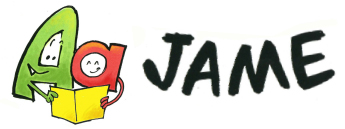JAME's mission and approach
JAME's mission is to ensure the educational success of children aged 0-12, especially those living in socially, economically and family vulnerable situations.
Through family literacy programmes, which are both language and culture vectors, JAME aims to increase the protective factors against school failure and marginalisation of the most disadvantaged, based on values of respect, social justice and openness to cultural and linguistic diversity.
.
JAME has been working in the context of cultural and linguistic diversity for over 30 years. Many of the families we serve speak little or no French and lack a sense of the expectations of the Quebec school system. Faced with a world that is linguistically incomprehensible and socially indecipherable, they tend to withdraw. Through our programs, we encourage families to take the first steps towards integration and exploration outside the home
Ecosystem Approach
JAME works in an ecosystemic approach that takes into account the child, the family and the community in which the child lives.

CHILDREN
To provide individual support for children in order to develop their reading skills as well as many cross-curricular skills necessary for their personal, social and academic development.

FAMILIES
To equip and support parents in order to restore their confidence in their role as educators, to demystify the school system and to act as a vehicle for communication between the family and the community.

COMMUNITY
To train and advise community workers, institutional and school staff in family literacy and intercultural approaches.
Our objectives
- To promote the pleasure of reading in order to ensure the educational success of children with learning or adjustment difficulties;
- To promote the overall development of children aged 0-5 years through EL (Early Literacy) programmes and activities and thus facilitate their transition to kindergarten;
- Valuing parents in their role as their children's first educators and equipping them to better support their children in their overall development and their schooling;
- Act as a community resource for referred families;
- Act as an agent of integration into the host society for families newly arrived in Quebec;
